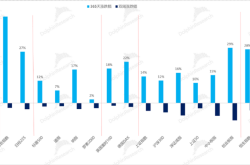Wave Goodbye to the "Android Tax"! NetEase Leads the Charge in Breaking Free—Are Domestic Mobile Game Firms Cutting Ties with Mobile Channels?
![]() 11/25 2025
11/25 2025
![]() 357
357
Games and Channels Intensify Their Competition.
Recently, while perusing gaming forums, I stumbled upon some intriguing posts.
It all began on TapTap when a user shared a screenshot, expressing confusion over the absence of NetEase games in their OPPO phone's app store. The comments section buzzed with activity, with some attributing it to a glitch, others asserting the games were still accessible, and a few speculating about server issues at NetEase.
Typically, such incidents might be dismissed with a few complaints, as occasional hiccups in app stores are not unusual.
However, the peculiar aspect was that this trend seemed to be gaining momentum.
Within days, a growing number of individuals reported similar problems with the app stores on their devices. And it wasn't limited to OPPO; even app stores from brands like Xiaomi and Vivo were witnessing the gradual disappearance of NetEase games.
Initially, it might have been overlooked as merely a few less popular titles, such as "Always 7 Days," going unnoticed. But soon, even nationally acclaimed games like "Justice Online," "Sky: Children of the Light," and "Land of Empires" began issuing announcements, bidding farewell to these channels.
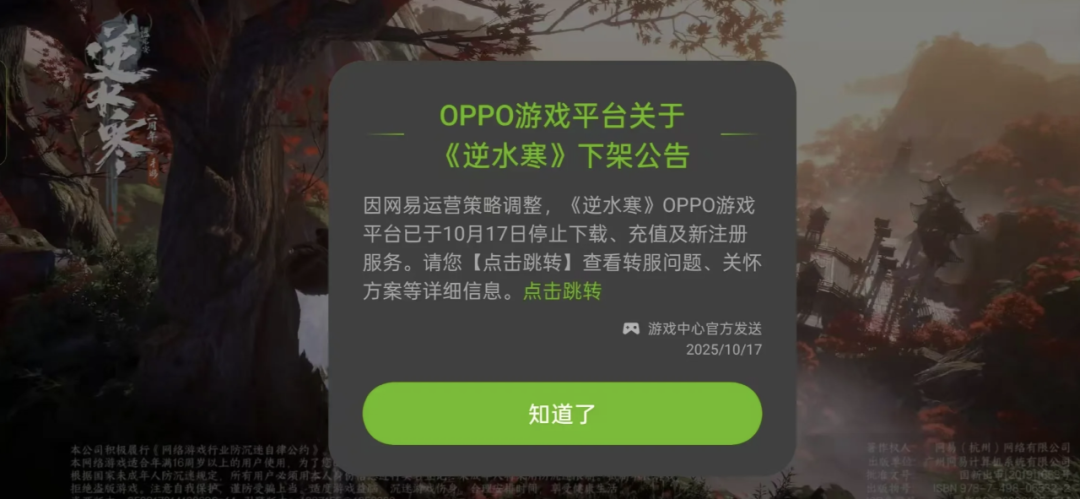
(Image source: NetEase)
Oh, this was no trivial matter. Clearly, gaming behemoth NetEase was orchestrating a massive split from some of China's largest Android phone manufacturers.
It felt akin to the chain supermarket downstairs from your residence, which had been operational for over a decade, suddenly removing all Coca-Cola and Pepsi products, creating an unusual ambiance.
A Protracted Breakup
What exactly is a channel service?
This might be the initial reaction of many upon encountering this news.
The so-called channel service involves some games, in their quest for more users, authorizing domestic Android phone manufacturers to operate servers on their behalf.
There's no disparity in game content between channel services and official servers. However, account data, servers, etc., for channel services are managed by the respective channel's phone manufacturer. This arrangement allows the channel party to earn a portion of the revenue as commission.

(Image source: Xiaomi)
This so-called portion—can be as high as half.
For an extended period, domestic Android channels have adhered to an unwritten yet firmly established rule: a 50-50 revenue split. If you recharge 100 yuan, 50 yuan goes to the phone manufacturer first, with the remaining 50 yuan being divided between the game developer and publisher.
This rule is widely recognized among players as the "Android tax."
In the early days of smartphones, this model was actually mutually beneficial. Leveraging the advantage of system pre-installation and app store entry points, phone manufacturers could effortlessly acquire users for game companies. With manufacturers possessing traffic and games offering content, everyone was on board, splitting the revenue 50-50 and generating profits together, which seemed quite logical.
But times have evolved.
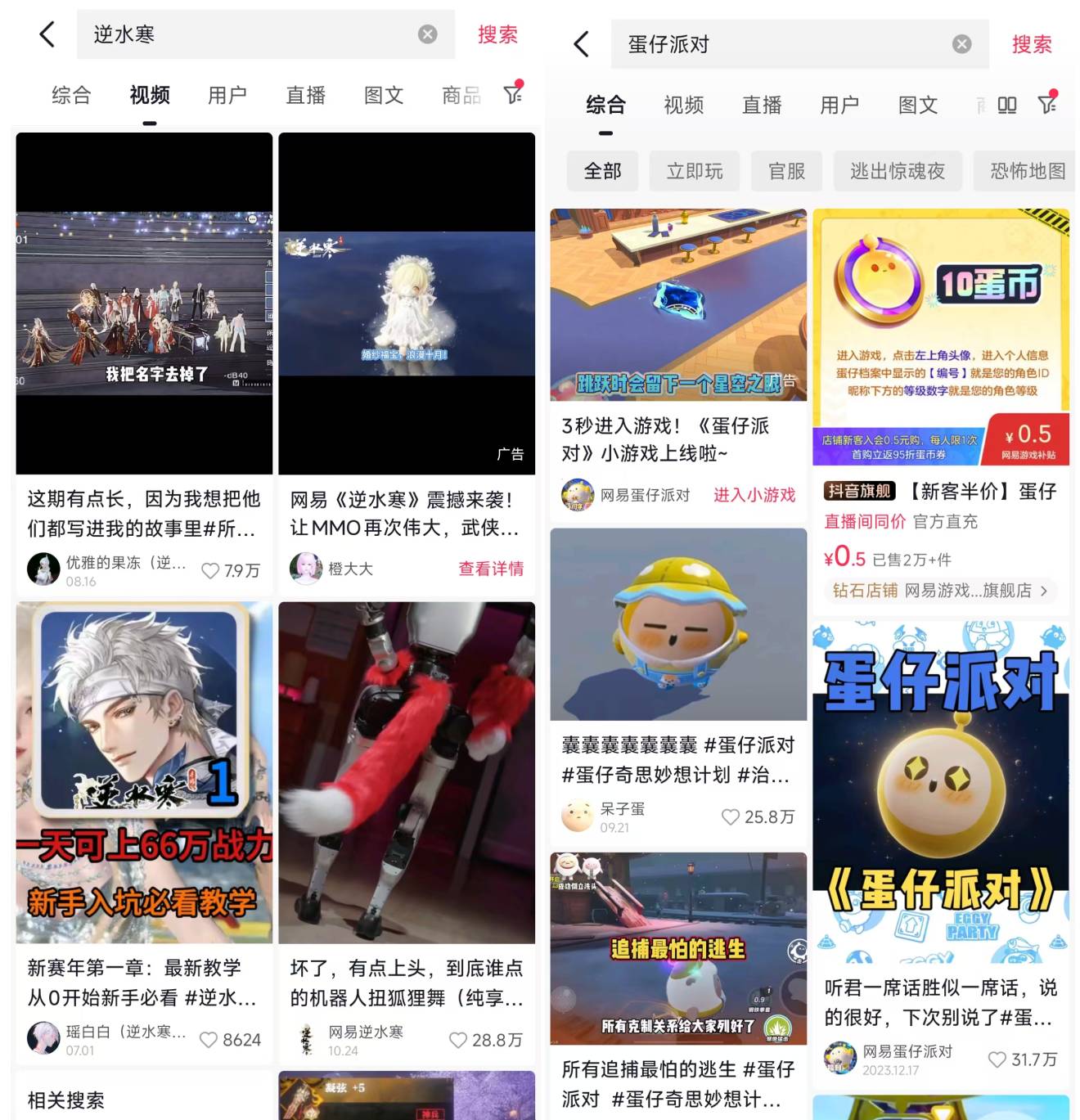
(Image source: Douyin)
"Nowadays, few users specifically visit app stores to find games. Most people encounter ads while scrolling through short videos and can directly jump to download, completing the process in one step," remarked Yang Bo, a gaming market operator, on a social platform.
The rise of new platforms has significantly diverted the natural traffic from mobile channel services, with short video platforms emerging as the largest traffic entry points. Taking NetEase as an example, "Eggy Party" swiftly gained popularity on Douyin and Kuaishou through UGC activities, and "Justice Online" mobile game arrived with its own buzz. These games no longer require the meager recommendation spots in stores to prove their worth.
Meanwhile, the development and operational costs of games have soared. With hundreds of millions of yuan invested in R&D and even more spent on user acquisition and promotion post-launch, the 50-yuan split that was once tolerable might now be the straw that breaks the camel's back.
NetEase's Ding Lei has publicly voiced his concerns, stating that the domestic revenue share ecosystem is abnormal and unhealthy.
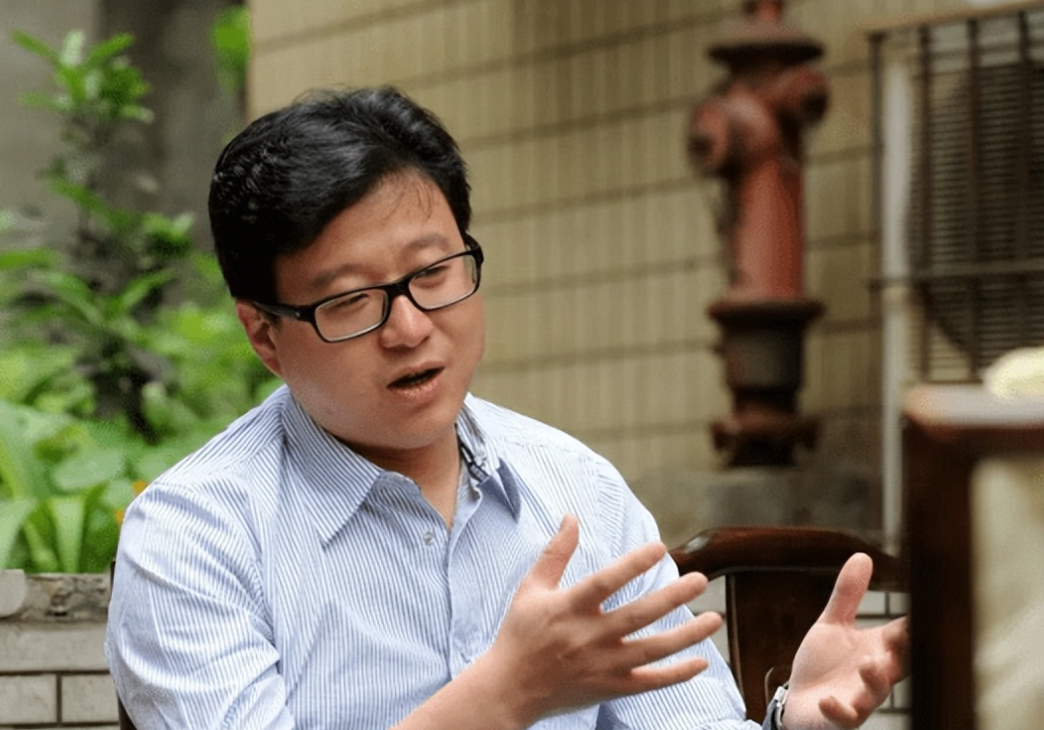
(Image source: NetEase)
Under the referral of short video websites and top KOLs, an increasing number of players have become aware of the concept of official websites and have started consciously opting to download from official servers.
As a result? To compete with game developers for customer flow, some app stores have resorted to "package washing" tactics. Some channel operators deliberately mislead users during the installation of official game packages, hoping to guide them to replace them with channel service packages. Some even go as far as directly swapping them, banking on players' ignorance.
Naturally, this has escalated the conflict between channel operators and game developers.
Thus, in 2023, NetEase launched "All-Star Street Basketball Party," the first game not to be listed on Android channels during its public beta; in 2024, Tencent reported multiple channel operators over the "Dungeon & Fighter Mobile: Origin" incident; and this year, Lingxi Huyu, under Alibaba Group, also discontinued channel services for "Three Kingdoms: Strategic Edition."
These developers are undoubtedly signaling to the channels: I'm done playing this game with you.
The "Hollowing Out" of App Stores
Interestingly, NetEase's mass exodus merely scratches the surface of the app stores' predicament.
You can conduct an experiment right now: open the app store that comes with your phone and search for some games and apps with a good reputation among users to see if you can locate them.
There are two possible outcomes: one, you can't find them; two, they're fake.
For instance, TapTap, a gaming community beloved by many players, is hard to come by in most phone app stores; some tools favored by tech enthusiasts, like Ku'an, are available in a censored version; and some internationally popular free apps, for various reasons, cannot be found in their purest, most feature-complete versions in built-in stores.
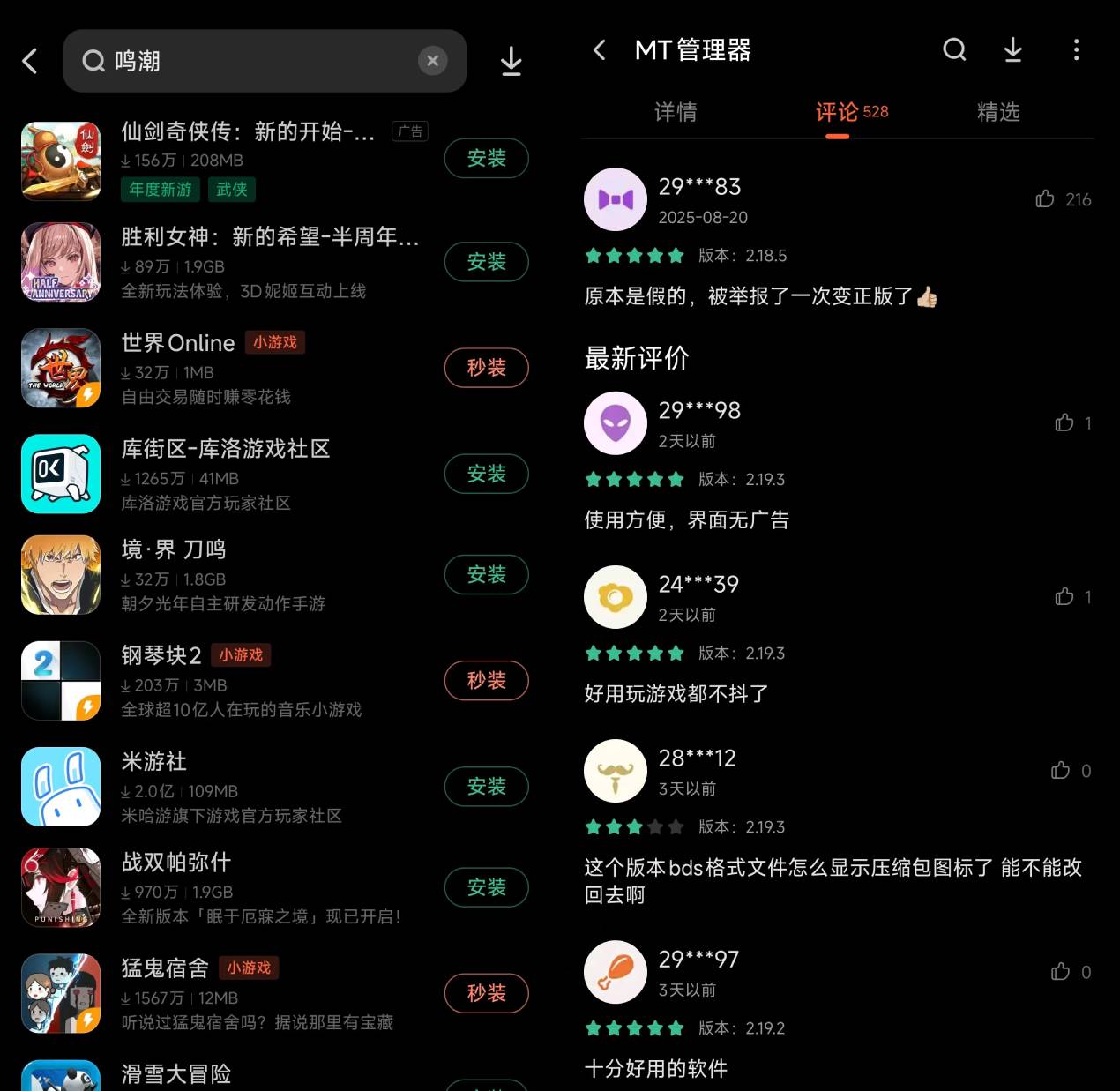
(Image source: Leikeji)
When splash screen ads, information flow ads, and the tiny "Promoted" text next to download buttons become the dominant features, the app store, once the king of traffic, is facing a severe hollowing-out crisis.
In contrast, platforms like TapTap are on the rise.
Why do they attract core players? Besides offering pure official games, they also boast communities, editorial recommendations, and genuine player reviews. Although there are fake reviewers (water armies) present, here, whether a game is enjoyable or not is more often determined by word-of-mouth from players.
As one flourishes, the other declines rapidly, and naturally, channel services are exiting the stage at a rapid pace.
So, what impact will this have on us ordinary players when the gods (game developers and channels) clash?
The impact is substantial.
From what I've observed on forums, when many small developers shut down their channel services, they take no subsequent measures, and users' channel service data is lost indefinitely.

(Image source: Weibo)
During my university days, I also downloaded some mobile games from the 9Game channel service, and few survived beyond two years.
In some cases, it was because the game developer and channel operator had a complete falling out, preventing the developer from accessing data from the channel server; in others, it was because official server players opposed it, feeling that channel services offered too many recharge benefits. Such situations are actually quite prevalent.
Although they offer some compensation plans, like diverting users to official servers or other games with some gifts, that compensation is minuscule compared to the effort and time invested over several years.
Fortunately, reputable major developers don't behave in this manner. If you've been playing "Dream Westward Journey" downloaded from the OPPO app store and now the OPPO channel server is shutting down, you can still migrate to the official NetEase server, at least preserving your character, equipment, guild, friends, and most of the time and money invested.
As for losing recharge records for game cards and some items having transfer restrictions, those are really minor inconveniences.
It just goes to show that there's a reason why everyone keeps advising against playing on channel services.
The Next Step for Channel Operators
Saying that channel services will completely vanish is unrealistic.
Major developers like NetEase and Tencent possess the brand and budget to acquire users independently and don't have to worry about finding players. But small and medium-sized game developers are different; they lack the same clout or money for promotion, and the exposure and user base from mobile app stores are still crucial for them in the early stages of launch.
So, for a considerable time to come, channel services will still be a part of the industry.
But to halt the downward trend, phone manufacturers really can't just be "landlords" collecting rent anymore; that will definitely drive away quality developers.
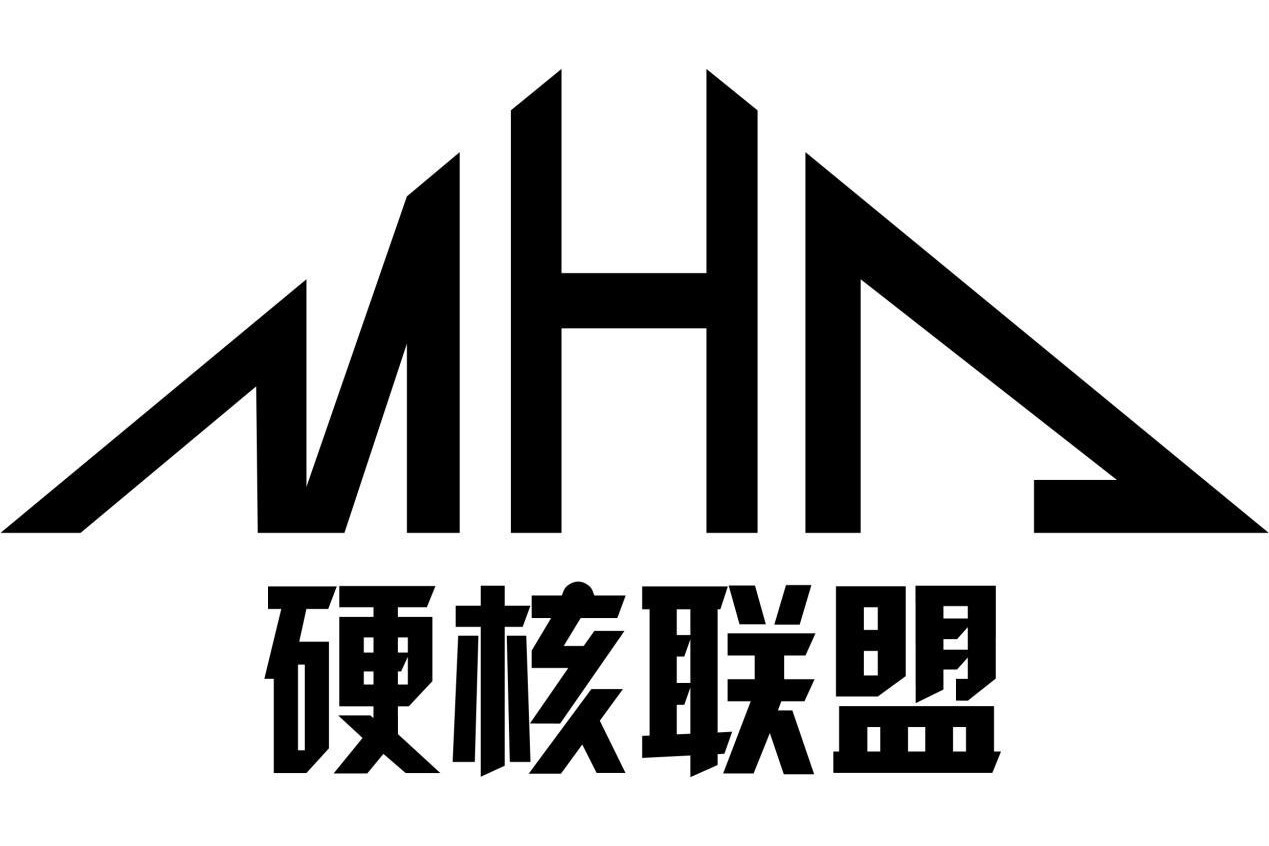
(Image source: Hardcore Alliance)
Next, here are some of my thoughts on channel services, and I wonder if any industry insiders will take notice.
First, optimization. Given that channel services are deeply integrated with channel SDKs, it's rare to see phone manufacturers specifically optimize for large games. If they could enhance phone performance, making them more power-efficient and stable in frame rates when playing games, providing players with the best gaming experience on channel services, it would actually make the phones themselves more competitive.
Then, communities. Currently, the game centers on my Xiaomi and OPPO phones have community sections, but they're just not operated well, lacking information and engagement. Why not seriously build a player community, encourage sharing of guides and reviews, and organize online and offline events?
With a sense of belonging and higher engagement, the platform's value far exceeds just selling traffic.
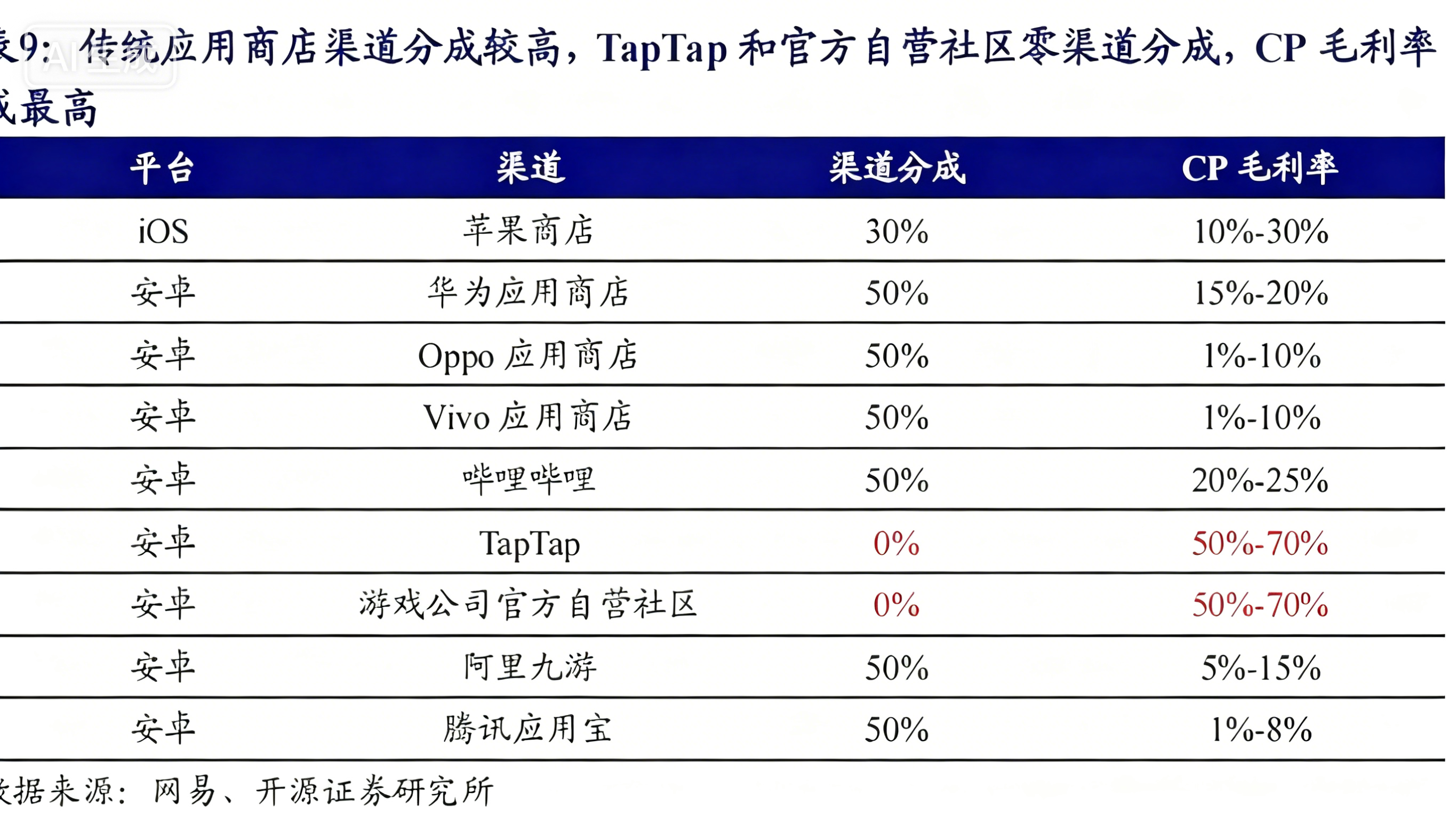
(Image source: Xueqiu)
Finally, it's time to revise that decade-old revenue share ratio. Apple only takes a 15% cut from mini-program revenue, and a 50% cut is high globally. Now that the value channels can provide is declining, sticking to high prices is unwise. Appropriately lowering the revenue share and giving more profit to developers will inject more vitality into the entire industry.
The era of "channels as kings" seems to be passing, but whether game developers can secure what they want remains uncertain.
NetEase App Market Mobile Channels Justice Online
Source: Leikeji
Images in this article are from 123RF Royalty-Free Image Library






